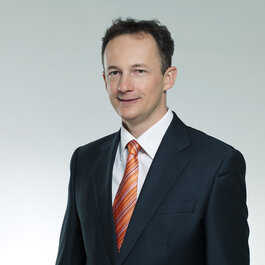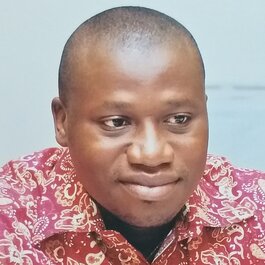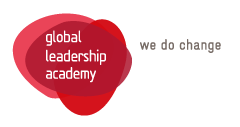Anti-Corruption and Transparency Community of Practice
Uniting for justice and strong institutions for all
This is a space for exchanging and working together on anti-corruption and transparency issues. The group first met in the GLAC Dialogue Forum Input Session on the 4th of June 2020. As a community of action working towards the Agenda 2030 we know there is no time to lose if we want justice and strong institutions for all.
An unlisted LinkedIn Group we offer a space for connection, exchange and collaboration on SDG 16, in particular target 16.5. "substantially reduce corruption and bribery in all their forms".
Related Input Sessions invite speakers from within the Community of Practice and guest to share their expertise and experience in the thematic field and explore questions further with a broader audience reaching out beyond the GLAC Network.
53
Participants
21
Countries
Topics
René El Saman introduced AC WORKS, a dynamic workshop format, designed by GIZ to address the negative impacts of corruption in challenging project environments. Corruption is a major obstacle to sustainable development. GIZ programs are often implemented in countries scoring low in Transparency International’s Corruption Perception Index and other relevant studies. Implementing projects in a corrupt context poses special challenges, as corruption impedes the achievement of project goals and interferes with the intended impact.
AC WORKS aims to support planning processes and comprises training elements to sensitize project members for corruption risks or to embed the topic of anti-corruption in wider groups such as GIZ country teams.
Elisabeth Medina from the Indonesian Anti-Corruption Agency (KPK) introduced the JAGA platform run by the KPK in Indonesia, providing information on local public services. At the same time, the platform offers a mechanism that allows men and women to report corruption-related grievances directly to the national Anti-Corruption Agency.
JAGA compiles data of services provided by selected other government institutions and manages them according to the needs of the public, which are easy to be understood, real-time, valid, and informative.
Currently, JAGA covers issues related to education, health, licensing, village fund, and government social assistance program. It collects and shares information from 404,000 schools, 2,777 government hospitals, 10,051 health centers, 536 One-Stop Service profiles, and 48,000 villages' systems.
In 2020, JAGA launched a new feature of Social Aid as part of JAGA’s COVID-19 response. This feature works as a channel that allows the citizen to report any misuse of the fund; and provides all needed information about the Government Social Assistance Fund Program. In collaboration with related ministries and 542 local governments, it has solved nearly 1,000 complaints to this day. At the same time, JAGA continues its assistance to help the citizen, especially in Social Aid Distribution, by opening up a new dedicated hotline just in September 2021.
Presentation: "JAGA - Open Government, Empowering Citizens"
Get in touch with Elisabeth Medina:
Elisabeth.Saraswati@kpk.go.id or elisabethmedinads@gmail.com
Africa is often portrayed as a miserable place plagued with wars and other vices even though it is a well-resourced continent with its riches and various resources. The challenges we are currently facing find their roots somehow in chronic mismanagement, poor leadership and endemic corruption…
Perspectives about Africa need and have to change. Africa has to reposition itself. How can we achieve a peaceful and prosperous Africa? What we need is the genuine fight against corruption, the change in mentality, and a responsible civic education. Parliamentarians have a key role - but civil society also has a responsibility and an important role to play here.
Countries classified by Transparency International as transparent and low-corruption are all characterised by a high degree of trust between citizens and government. They are well-developed democracies such as Finland, Denmark, New Zealand, Sweden and Norway, where a certain tacit pro-egalitarian attitude prevails when it comes to redistributing wealth through fiscal policy instruments.
On the other hand, countries which demonstrate high corruption potential share some common features including avoidance to pay taxes as political elites are alienated from citizens with widespread opinion that they are subjects of Government whom they do not trust.
In countries with high corruption potential politics is often treated as highly lucrative business and corruptive structures integrate political elite with large business and organized crime. H ow to transform corruption from highly lucrative and low risk into the low profitability and high-risk activity? This also raises the question of how to make integrity the guiding principle of a society.
Within the scope of an EU-funded project in Bosnia and Herzegovina that was completed in 2021, a thematic art contest and exhibition on such a complex topic as anti-corruption were launched. The virtual gallery of the artwork is available here.
“We have to change mindsets and turn corruption from high profitability and low risk activity into the low profitability and high risk activity!”
Danijel Pantic
If you are interested to join the group, please contact us directly, Danijel Pantic and Fabrice Fifonsi.
Organizers

Danijel Pantic
Danijel Pantic
With a Master’s degree in law, strong commercial acumen, and a profound knowledge of EU procedures, Danijel is currently a Managing Director of European Consulting Group LLC - a leading consultancy company and a Project Director of two EU funded projects in Serbia. He has a vast experience in capacity building of NGOs and CSOs. He was a Secretary General of the European Movement in Serbia, founder and the first Vice President of the Serbian Association of Managers and Transparency International Serbia.

Fabrice Fifonsi
Fabrice Fifonsi
Fabrice Fifonsi is a visionary leader, change agent, and good governance advocate. He has extensive knowledge and experience in design thinking, development, implementation, and management, as well as overall organizational leadership. He holds a Master of Arts degree in Sociology and Anthropology. With established notoriety as a Governance, Anti-corruption, and Parliamentary Strengthening Expert for the past 10 years, Mr. Fifonsi currently serves as the Executive Director at the Secretariat of the African Parliamentarians’ Network Against Corruption (APNAC), the lead African network of parliamentarians committed to fighting corruption and promoting good governance.
https://apnacafrica.org/en_US/
“Fighting corruption should not be left in the hands of parliamentarians alone but the civil society as well. In Africa oftentimes multinational and not african companies are involved in corruption scandals, which is often not considered.”
Fabrice Fifonsi
